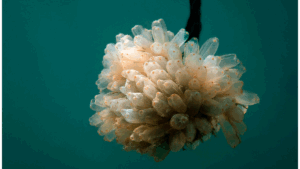
EMA-Gate: PharmaMar wins suit against EMA
The European Commission has fully upheld the complaint by PharmaMar SA due to conflicts of interest of leading EMA experts in the (non-)authorisation of Aplidin.
The European Commission has corrected its decision C(2018) 4831 from 2018 not to grant marketing authorisation for Aplidin (plitidepsin), a peptidic cell cycle blocker and apoptosis inducer for the treatment of the blood cancer multiple myeloma, because the EMA experts involved in the negative recommendation of the CHMP had a conflict of interest that violated the principle of impartiality.
Prof. Dr. José Maria Fernández Sousa-Faro, Chairman of PharmaMar’s Board of Directors, described the way to the EMA refusal as follows: Initially, “EMA’s rapporteur and co-rapporteur recommended the approval of plitidepsin with no outstanding issues. Then inexplicbly, the CHMP summonded an oral explanation […] in which the Swedish and Danish members attacked the recommendation of the rapporteur and co-rapporteur leading to a negative vote. In Australia, the authorities with the same Phase III study we presented to the EMA concluded that the drug was safe and there was a positive benefit for the patients.”
After the European Court of Justice confirmed this view in 2020, the Commission reviewed the criteria for the involvement of experts in the administrative procedure for the authorisation of Aplidin and the relevant EMA rules on conflicts of interest to ensure the objective impartiality of these experts. Contrary to PharmaMar, the Commission notes that only one of the experts of the Scientific Advisory Group (SAG) involved in the Phase I tests of the competitor product Cellprotect, an autologous NK cell therapy, at the Karolinska Institutet hospital, developed by the Swedish XNK Therapeutics AB, which went bankrupt in April this year, should not have been allowed to participate in the authorisation procedure for Aplidin, according to the EMA rules in force at the time.
In spring 2023, Sousa-Faro told European Biotechnology Magazine that all four members of the CHPM that bypassed the rapporteur’s and co-rapporteur’s recommendation for market approval of Aplidin, were Swedish and had training at the Karolinska Institute: Tomas Salmonson, previous Chair of the EMA’s CHMP, Filip Josephson, Chair of the Scientific Advisory Group (SAG), Jonas Bergh, SAG’s multiple myeloma expert, and Hareth Nahi, Principle Investigator or the Phase I trial on CellProtect and previous Medical Advisor of XNK Therapeutics AB.
Why Estonia and Germany appealed against the decision of the 6th Chamber of the EU Court of Justice in 2020 remains a matter of speculation. Chamber of the EU Court of Justice in 2020, even though the European Commission had decided not to do so, which could be understood as an implicit acceptance of the judgement. In 2023, the Court of Justice of the European Union set aside the General Court’s 2020 judgement and referred the case back to the General Court to rule again on the first ground for annulment raised by PharmaMar in its original action and, if it considered it necessary, to rule on the second ground for annulment,if it considers it necessary, to rule on the other grounds for invalidity of the action. That is, to rule not only on the conflict of interest and the breach of the principle of objective impartiality by the EMA, but also on the breach of the principle of sound administration, the breach of the principle of equal treatment and the incorrect analysis of the scientific evidence submitted by PharmaMar, the breach of the duty to state reasons and the breach of the rights of the defence.Should Aplidin be granted marketing authorisation, the exciting question remains as to who will have to pay what amount for the lost profit within the patent term of Aplidin.



 PharmaMar SA
PharmaMar SA EC
EC